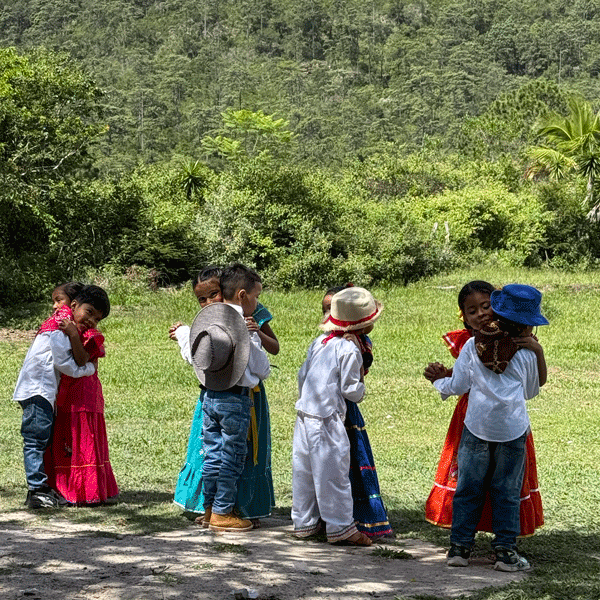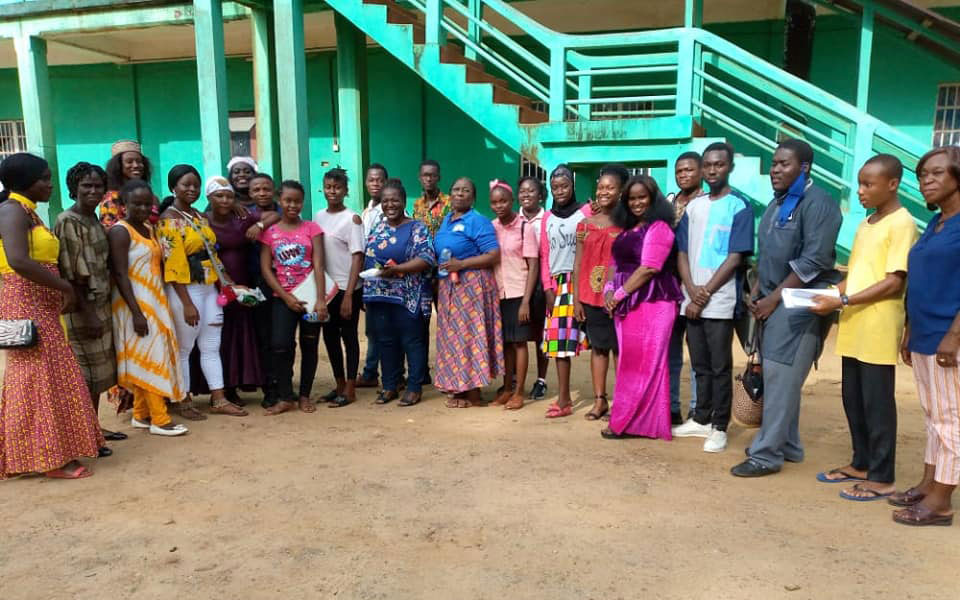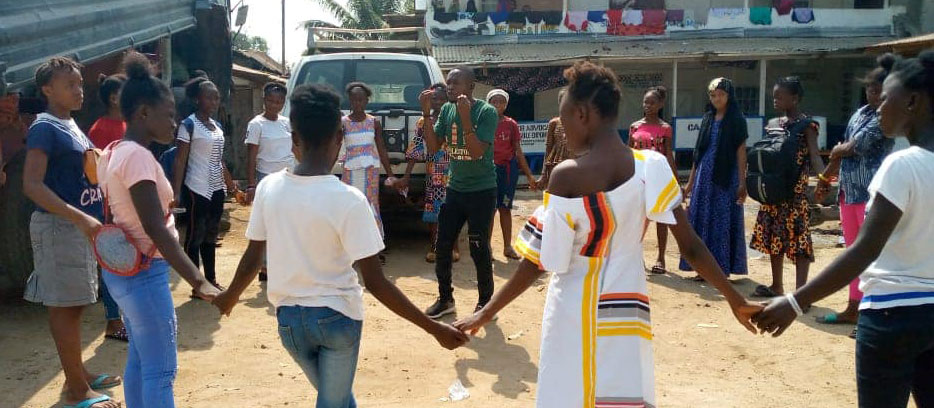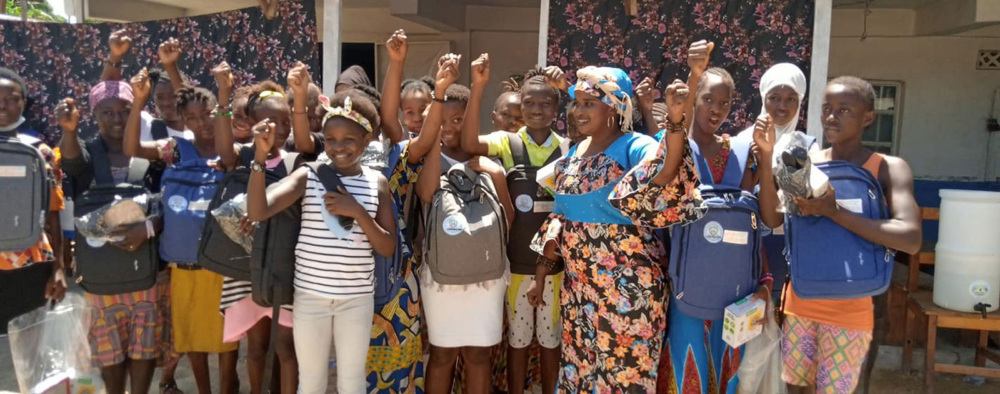
Education
Education, Gender justice
Last November, 13-year-old Massa delivered an inspiring speech on girls’ rights to the leaders of GFC partner organizations from Liberia and Sierra Leone who were meeting to learn from each other’s work with adolescent girls.
“Women and girls are supposed to be important people in the society; we should not be occupying minor roles,” Massa told the group, which was visiting the Center for Advocacy and Sustainable Empowerment (CASE SALONE) in Bo, Sierra Leone. “That’s why I so appreciate CASE SALONE. I so appreciate all the organizations that support us, that create a classroom for us, that enlighten us that we are important people in the society.”
“So, I want you to stick with us, to stand up for us, to be with us, to enlighten us, to include us in your programs,” she added.
Massa’s public speaking skills are a testament not only to her tenacity, but also to CASE SALONE’s leadership program, which empowers girls to speak out about the issues that affect them.
“We call it the girl-centered power approach,” said Rassie Bah, the organization’s founder and Executive Director. “If you want to get good leaders, it has to start with public speaking.”
CASE SALONE’s approach focuses on meeting girls where they are, which is often on the internet and on social media. In addition to speaking at community meetings and educating their peers at school, the girls involved in CASE SALONE’s program practice their public speaking skills by recording advocacy videos for social media. Their goal is not to convince other girls that they should think or behave a certain way; it’s to raise awareness about issues like female genital cutting, early marriage, and teenage pregnancy so that adolescent girls have the information they need to make informed decisions.
CASE SALONE also works to destigmatize menstruation and to ensure that a lack of feminine hygiene supplies doesn’t keep girls from attending school. The organization has provided local teachers with pads to distribute to their students and encourages young women to talk about their periods.
“Now, they are bold enough to tell their teachers, ‘I’m on my menses, but I don’t need to go home,’” Rassie explained.
Rassie’s passion for ensuring that girls have access to education stems from her own experience. Her family didn’t believe in sending girls to school, so as a child, she used to stand in the classroom doorway to listen to the lessons. One day, a teacher invited Rassie inside, and she started attending school.
[image_caption caption=”Amé Atsu David, GFC’s Regional Capacity Development Specialist for West Africa, poses for a photo with Rassie Bah and representatives from other organizations in the Ending Violence, Empowering Girls initiative. © CASE SALONE” float=””]

[/image_caption]
After college, Rassie got a job at a library where her coworkers often turned to her for advice when they faced problems at home, including domestic violence. Rassie began advocating on their behalf, and in 2016, she founded CASE SALONE to support women and girls in her community.
In addition to empowering girls to stay in school and take on leadership roles, CASE SALONE offers them counseling. After learning that some local families didn’t have enough money to provide their children with lunch and other necessities for school, Rassie and her team also launched a microloan program to support small businesses run by women.
Although the COVID-19 pandemic has created challenges – including forcing CASE SALONE to pause its student empowerment clubs in schools – the organization has achieved some important milestones over the past 18 months. Early last year, CASE SALONE joined GFC’s Ending Violence, Empowering Girls initiative, which is funded by the NoVo Foundation and People’s Postcode Lottery. In March 2021, Rassie and her team opened a new office with a special room for one-on-one counseling.
Since partnering with GFC, CASE SALONE has also been able to apply for new sources of funding. The organization had previously struggled to obtain financial support because other funders weren’t willing to take the risk of becoming CASE SALONE’s first financial supporter.
[image_caption caption=”During a CASE SALONE activity in January 2021, girls shared their opinions about how they would like to be treated in the society. © CASE SALONE” float=””]

[/image_caption]
“GFC was a blessing. They just added value to what I was doing already,” Rassie said. “Now that GFC is with us, any application I write, when they ask, ‘Have you received funding from any organization?’ we can answer yes and get recommendations.”
As CASE SALONE continues to grow, it has forged connections with the other organizations in the Ending Violence, Empowering Girls initiative. Together, the six community-based organizations in Sierra Leone and Liberia that make up this initiative are tackling the root causes of violence against women and girls in their communities and empowering them to exercise autonomy over their bodies and their lives.
Header photo: CASE SALONE celebrating International Day of the Girl Child in 2020. © CASE SALONE
